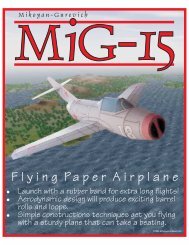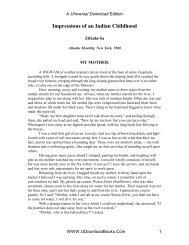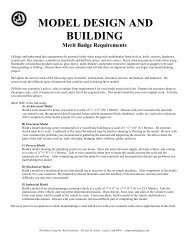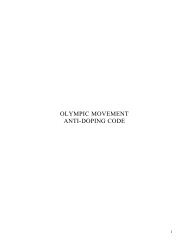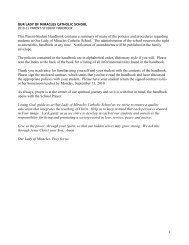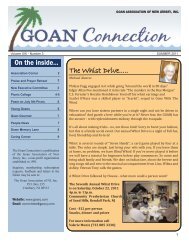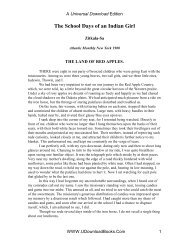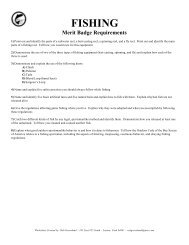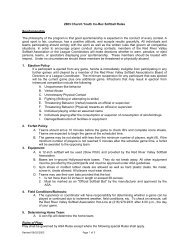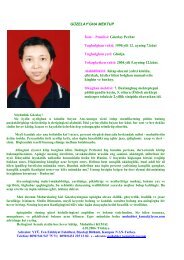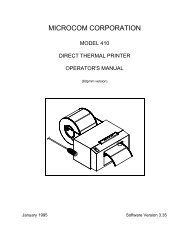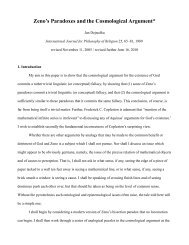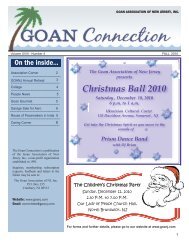Dummett's Backward Road to Frege and to Intuitionism - Tripod
Dummett's Backward Road to Frege and to Intuitionism - Tripod
Dummett's Backward Road to Frege and to Intuitionism - Tripod
You also want an ePaper? Increase the reach of your titles
YUMPU automatically turns print PDFs into web optimized ePapers that Google loves.
objects....” (1981a: 132, my emphasis)<br />
He does not mention that “the sense of the incomplete name ‘ξ is a card deck’” functions exactly as<br />
much as a proper name as do his examples. This proper name is complete; the “‘ξ’” is not used but only<br />
mentioned as part of the indirectly quoted incomplete name.<br />
Montgomery Furth makes complete senses objects <strong>and</strong> incomplete senses functions (1968: 9).<br />
Perhaps the 1993 Dummett agrees, since he says a concept is “a component of a thought” (1993: 61,<br />
105, 129; see my 2003: 65); but perhaps this is his “non-<strong>Frege</strong>an use” of “concept” again. If Dummett<br />
is no longer insisting that all senses are objects, this rescues him from the dilemma of admitting<br />
incomplete senses either as complete objects or as incomplete objects. But he still faces the deeper<br />
dilemma. If he still insists that for <strong>Frege</strong> all entities are either objects or functions, his only other<br />
options are that incomplete senses are either functions—pace his rejection of Geach—or not entities.<br />
The 1993 Dummett also says, “All things are Bedeutungen” in the sense of being “a possible object of<br />
reference” (1995: 8), facing the deeper dilemma, at least if he means cus<strong>to</strong>mary references.<br />
Dummett criticizes Geach for saying incomplete senses are functions because they map other<br />
senses on<strong>to</strong> thoughts. I agree with Dummett that they are functions only functionally speaking. They do<br />
not belong <strong>to</strong> <strong>Frege</strong>’s category of functions. But in virtue of their being indirect references, incomplete<br />
senses might be called indirect functions. I think we may accept Geach’s innocuous mapping<br />
observation, which is not the same as the harmful conclusion he draws from it that incomplete senses<br />
are cus<strong>to</strong>mary functions. If his mapping observation sheds no light on the ultimate nature of senses,<br />
pace Dummett (1981a: 268), so what? We might also harmlessly note that asser<strong>to</strong>ric force in effect<br />
maps thoughts on<strong>to</strong> assertions. Would anyone conclude that forces are functions, or that this sheds any<br />
light on the nature of forces? In this innocuous sense, we can even use objects <strong>to</strong> map functions on<strong>to</strong><br />
truth-values! But on <strong>Frege</strong>’s view that sentence, thought, <strong>and</strong> truth-condition are structural models of<br />
43



